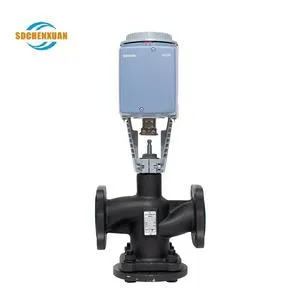In today's industrial world, control valves play an important role. They are like blood regulators in modern mechanical systems, ensuring that the flow of fluids is accurately controlled. Control valves are designed and used across a wide range of industries, from petroleum refineries to chemical processing plants to food and beverage production lines, where they play an indispensable role.

So, how exactly do control valves work? In short, control valves manage the flow, pressure, temperature and other key parameters of fluids (liquids, gases, steam, etc.) by changing the on-off or cross-sectional area in the fluid flow path. This adjustment is achieved by moving parts inside the valve, such as the valve core, disc or ball. As these components move under the influence of the actuator, they change the size of the channels inside the valve, thereby affecting the flow rate of the fluid.
In automation systems, control valves are usually connected to sensors and controllers to form a closed-loop control system. The sensor is responsible for monitoring the real-time status of the fluid such as temperature and pressure and feeding the data back to the controller. The controller issues instructions to adjust the position of the control valve based on the difference between the preset target value and the actual value to maintain stable operation of the process.
There are many types of control valves, including but not limited to ball valves, butterfly valves, gate valves, globe valves, and needle valves. Each valve has its own unique characteristics and the most suitable application scenarios. For example, ball valves are known for their excellent sealing performance and ability to quickly cut off fluids, while butterfly valves are favored for their compact structure and low cost.
In the future, with the development of the Internet of Things and intelligent manufacturing technology, the intelligentization and networking of control valves will become a trend. These advanced control valves enable more refined fluid control, provide real-time data analysis, and further improve the efficiency and reliability of industrial systems through remote monitoring and diagnostics.
In short, control valves play a vital role in modern industry. As technology continues to advance, their functions and applications will continue to expand and deepen, providing strong support for the development of all walks of life.